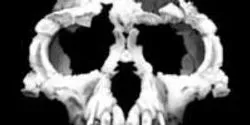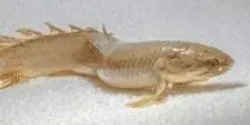evolutionary biology

Research actually provides further support for Darwin, UCLA professor says.

A team led by structural biologists at The Scripps Research Institute (TSRI) has taken a big step toward understanding the intricate molecular mechanism of a metabolic enzyme produced in most forms of life on Earth.

The Paleolithic diet, or caveman diet, a weight-loss craze in which people emulate the diet of plants and animals eaten by early humans during the Stone Age, gives modern calorie-counters great freedom because those ancestral diets likely differed substantially over time and space, according to researchers at Georgia State University and Kent State University.

How did life originate? And can scientists create life? These questions not only occupy the minds of scientists interested in the origin of life, but also researchers working with technology of the future. If we can create artificial living systems, we may not only understand the origin of life - we can also revolutionize the future of technology.

Fish just want to have fun, according to a University of Tennessee, Knoxville, study that finds even fish 'play.'

A Virginia Tech geobiologist with collaborators from the Chinese Academy of Sciences have found evidence in the fossil record that complex multicellularity appeared in living things about 600 million years ago – nearly 60 million years before skeletal animals appeared during a huge growth spurt of new life on Earth known as the Cambrian Explosion.

About 400 million years ago a group of fish began exploring land and evolved into tetrapods – today's amphibians, reptiles, birds, and mammals. But just how these ancient fish used their fishy bodies and fins in a terrestrial environment and what evolutionary processes were at play remain scientific mysteries.

Procrastination and impulsivity are genetically linked, suggesting that the two traits stem from similar evolutionary origins, according to research published in Psychological Science, a journal of the Association for Psychological Science. The research indicates that the traits are related to our ability to successfully pursue and juggle goals.










